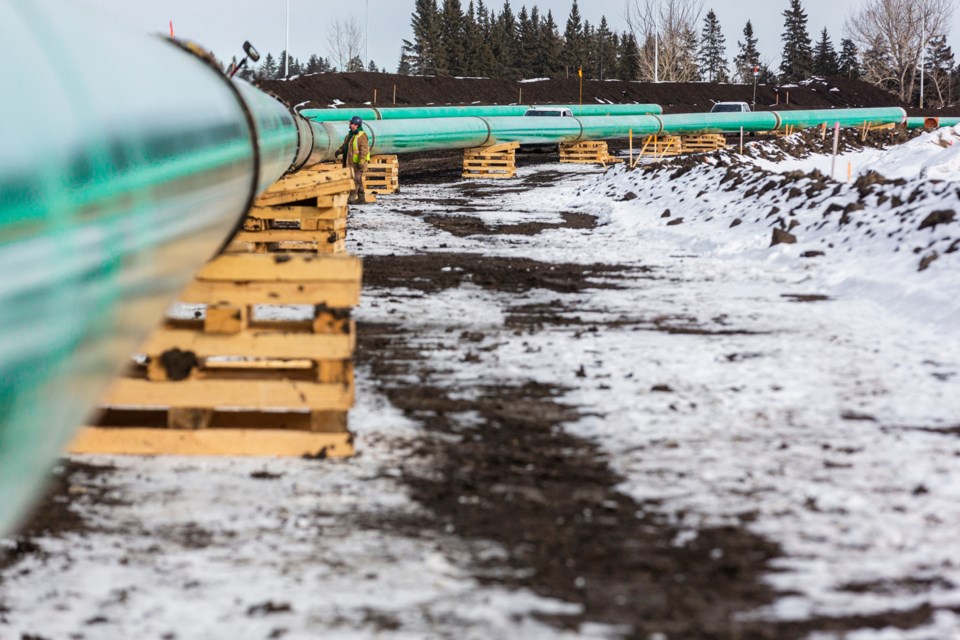Big energy projects underway in B.C. and Alberta have not been forced into a wholesale shutdown by the COVID-19 pandemic, although a number have scaled back their work force. But at least two new projects are coming to life during the virus crisis.
Despite the pandemic and a collapse in oil prices, work has started on the Canadian portion of the Keystone XL oil pipeline with a $7 billion commitment – $1.5 billion in equity and $6 billion on loan guarantees – from the Alberta government to open this route to U.S. markets.
In May, FortisBC was putting the finishing touches on a $400 million expansion of its Tilbury Island LNG plant in Delta, but already pushing ahead with a second phase expansion.
When complete, the $3 billion expansion would mean the Tilbury Island plant would produce more LNG than the Woodfibre LNG plant in Squamish.
The four big energy projects in B.C. that were underway when restrictions on travel and physical distancing in the workplace went into effect in March were the $40 billion LNG Canada project, the associated $6.6 billion Coastal GasLink pipeline, the $12.6 billion Trans Mountain pipeline expansion and the $10 billion Site C dam project by BC Hydro.
LNG Canada has scaled back its workforce in Kitimat, reducing the number of workers at the site and in a work camp there by 65 per cent – from 1,800 workers to about 600.
Ramping back up to pre-pandemic activity depends on guidance from public health officials, said Susannah Pierce, LNG Canada’s director of corporate affairs.
“We really don’t have a timetable for it,” Pierce said. “It’s really just going to have to be when we’re able to do it safely. Typically, we’re going to want to get back to doing those things that have already been underway.”
That includes completing the construction of Cedar Valley Lodge, a 4,500-unit work camp in Kitimat that will house all the workers who are working on site.
“We will not do anything until it’s safe to do so,” Pierce said.
The related $6.6 billion Coastal GasLink project has been less affected by pandemic restrictions than the LNG site construction in Kitimat.
Work has continued to clear the natural gas pipeline route. The project is operating with a reduced workforce right now, with about 300 workers, about 30 per cent of whom are in work camps. But that reduction was more about spring breakup than pandemic health and safety restrictions.
“Typically, we would see construction activities begin to increase after spring thaw in mid-to-late May,” Coastal GasLink said in an email. “However, due to the COVID-19 pandemic, we are currently evaluating, and will adjust our construction schedules as required, prioritizing safety, working closely with our contractors.”
BC Hydro and its contractors have reduced the workforce at the Site C dam work camp to 861 as of May 8. The project would typically have 1,700 workers on site, pre-pandemic.
Work on the Trans Mountain pipeline expansion, meanwhile, has never stopped throughout the COVID-19 pandemic. More than 2,000 workers have continued to work on the project in Alberta and B.C. For Trans Mountain, it has basically been business as usual, minus the public protests.
“We expect to have construction underway in every spread [25 kilometre strerches] and at all our terminals in B.C. and Alberta this summer,” Trans Mountain said in an emailed statement. •



